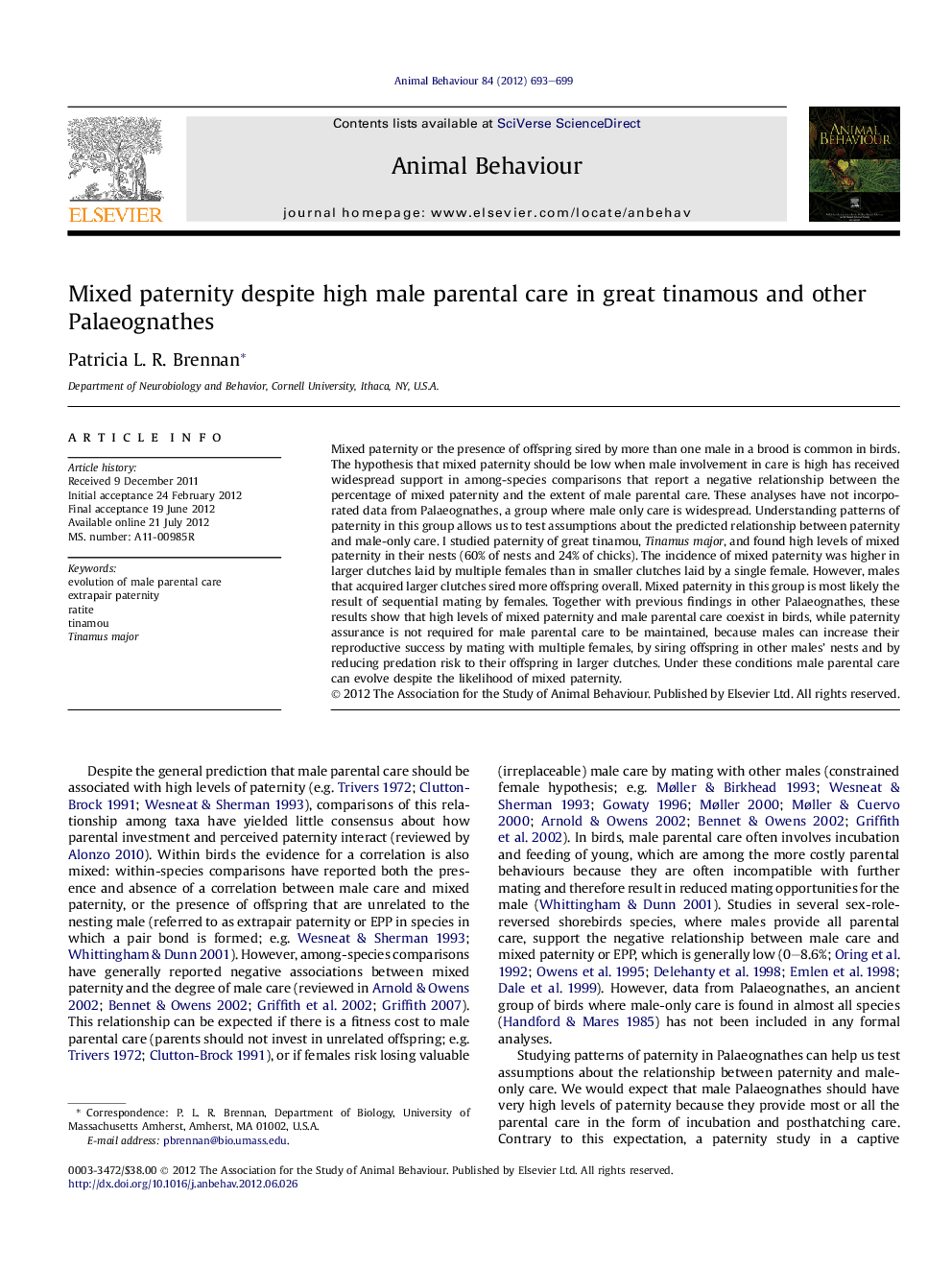| کد مقاله | کد نشریه | سال انتشار | مقاله انگلیسی | نسخه تمام متن |
|---|---|---|---|---|
| 2416844 | 1104299 | 2012 | 7 صفحه PDF | دانلود رایگان |

Mixed paternity or the presence of offspring sired by more than one male in a brood is common in birds. The hypothesis that mixed paternity should be low when male involvement in care is high has received widespread support in among-species comparisons that report a negative relationship between the percentage of mixed paternity and the extent of male parental care. These analyses have not incorporated data from Palaeognathes, a group where male only care is widespread. Understanding patterns of paternity in this group allows us to test assumptions about the predicted relationship between paternity and male-only care. I studied paternity of great tinamou, Tinamus major, and found high levels of mixed paternity in their nests (60% of nests and 24% of chicks). The incidence of mixed paternity was higher in larger clutches laid by multiple females than in smaller clutches laid by a single female. However, males that acquired larger clutches sired more offspring overall. Mixed paternity in this group is most likely the result of sequential mating by females. Together with previous findings in other Palaeognathes, these results show that high levels of mixed paternity and male parental care coexist in birds, while paternity assurance is not required for male parental care to be maintained, because males can increase their reproductive success by mating with multiple females, by siring offspring in other males' nests and by reducing predation risk to their offspring in larger clutches. Under these conditions male parental care can evolve despite the likelihood of mixed paternity.
► Mixed paternity in great tinamou is high despite exclusive male care.
► Males loose more paternity but sire more offspring in larger clutches.
► Males may protect their offspring by ‘dilution’ effect.
► Males may gain by spreading their paternity to other males' nests.
► Paternity assurance is not required for male care to evolve.
Journal: Animal Behaviour - Volume 84, Issue 3, September 2012, Pages 693–699